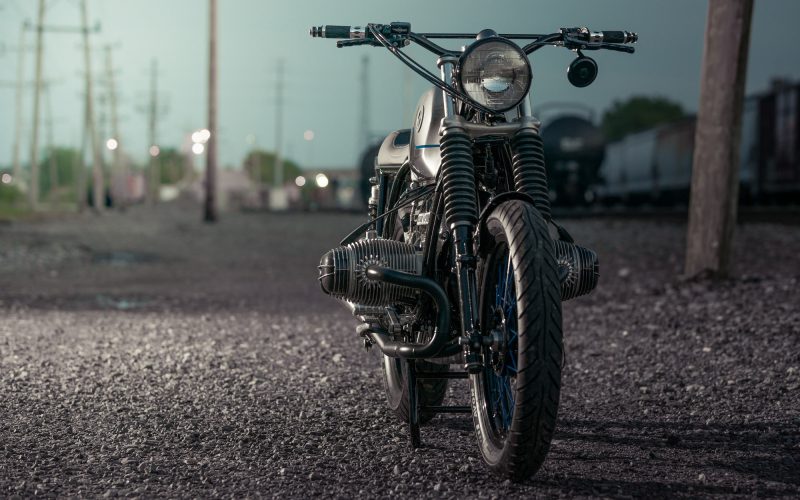8 Important Tips for Maintaining Your BMW Motorcycle
Buying a BMW motorcycle has presented you with the opportunity to own “The Ultimate Driving Machine”, but it also requires you to maintain that machine as well.
Proper maintenance is a critical component to the longevity of your motorcycle. BMW engineers dedicated tremendous time and energy to the production of a great motorbike. Taking good care of it is now your responsibility.
For those who aren’t interested in getting their hands dirty, take your bike to the dealer service department or a good independent shop. While it will hit you in your wallet, they are likely to take good care of your bike.
For those owners who are ready to devote time and energy when necessary, learning the DIY options is a constant labor of love. Here are our picks for 8 tips and pointers from the experts about how to keep your BMW motorcycle running for years to come.
1. Start Off Simple
Unlike cars, motorcycles are pretty basic vehicles. There are fewer components on the bike, which means there are fewer things to go wrong. Better still, much of what could need your attention is fairly easy to access, thanks to the exposed nature of motorcycles.
Make a habit of regularly checking your tire pressure and be sure your electronics are in good working order. Make sure to allow the engine time to properly warm up before hard use.
A little attention on a regular basis to the easy stuff can save you plenty of hassle later on.
2. Change Your Own Oil
There’s very little wrenching involved in the task, but it’s a great first step in familiarizing yourself with your engine.
Give the used oil a good look to see how clean or dirty it is. Clean oil is a good sign as it shows the engine is running well. Dirty oil is a clear sign to any professional that proper maintenance is being ignored.
Gunky deposits are a particular eyesore and should encourage a more thorough look into potential problems.
3. Join a BMW Motorcycle Community
There are tons of online forums available from your computer keyboard, so don’t be shy in seeking out a few forums dedicated to your particular model and year.
Other owners of a DIY-mindset will often share their experience and expertise, many times with photos or videos to help clarify their discussion.
Reviewing someone else’s work can sometimes save you multiple failed attempts at tough tasks. You’re not cheating – you’re just looking for good learning opportunities!
4. Network With Local Bikers
Motorcycle owners in your local area are sure to have tools or space you may need, as well as helpful tips and tricks. They don’t have to own a BMW motorcycle to be a value to you as you learn to maintain your bike.
Tasks as simple as safely removing your fairings or finding a wheel stand to borrow are where fellow riders can really come in handy.
Fellow riders can also share their veteran savvy in teaching you how to feel the good and the bad as your bike takes on more miles. For first-time riders, help like this is invaluable!
5. Pay Special Attention To Your Brakes
While the ability to go is important (and certainly enjoyable!), the ability to stop is more pertinent to the safety of you and your bike.
Let’s say you don’t swap your used brake pads for new ones at the recommended interval. This might save you from purchasing the new pads at that moment, but it may cost you in new rotors further down the line.
An oversight like this is certain to take more money out of your pocket than would have been required, while also putting you and your fellow riders at unnecessary risk as well.
6. Find a Parts Supplier You Trust
It is important to understand that a service center or independent repair shop still has to source parts for their work. To that point, you’ll have to do the same.
You can search online parts catalogs to supply you with your parts or you can find a local supplier to work with. The most important thing to remember is to buy parts approved by the manufacturer.
After-market parts can be found at significant savings, but they also come at the risk of using something not made to the same standard of excellence. Your BMW motorcycle comes from a top-tier manufacturer, so it would be wise to purchase the parts their engineers have designed for your motorbike.
7. Know Your Limits
Not everyone wants to be the one troubleshooting their clutch or replacing their head gasket. Some owners will readily admit they don’t trust themselves to handle the larger and more intensive tasks.
This is not something to be ashamed of. A motorcycle is an instrument of speed and enjoyment that demands your respect, both as an owner and as a rider. If you’re uncomfortable performing the tough stuff, seek out help from a professional.
The motorcycle community is known to always look after each other, so you have a good shot at finding a mechanic or veteran rider who is willing to work on your bike alongside you. At the same time, it’s no slight on you to accept that some of the maintenance for your motorbike is in your wheelhouse and some of it is not.
You bought your motorcycle to enjoy riding it, so do what you need to in order to give yourself maximum opportunity to ride it!
8. Source the Correct Manual for Your Bike
You bought a BMW motorcycle because you believe in their quality and performance, so maintaining that quality and performance requires the right materials. Those materials include the manual you’ll follow along with.
You can find the manuals for hundreds of models from BMW’s storied history building motorcycles on our website.


